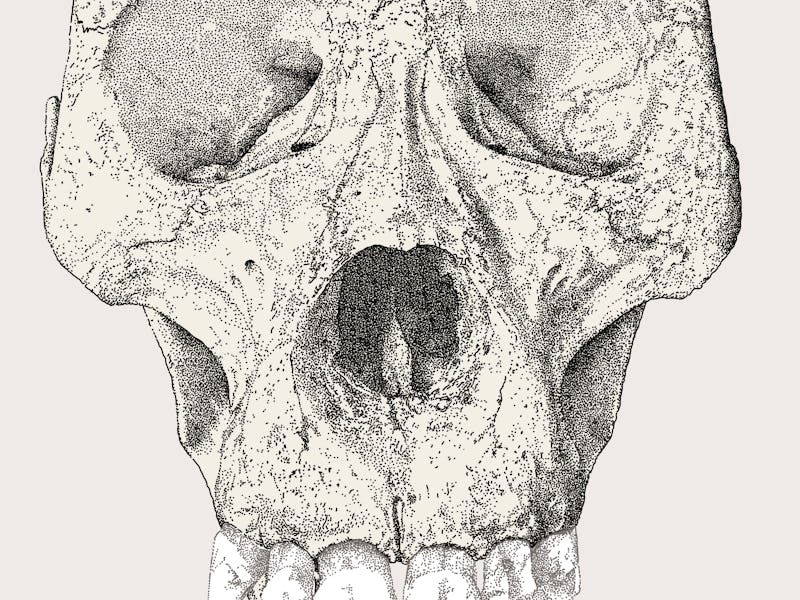Covid-19 genetics may be linked to an ancient human species
Back in the day, these genes were probably a good thing.

Before late 2019, Covid-19 didn't exist. But the genes that may make some people more likely to have a severe form of the disease did exist.
In fact, they've been around before there were even modern-day humans, hiding away in the DNA of an ancient hominid that has since vanished from the face of the Earth.
A cluster of genes linked to more severe experiences with Covid-19 may have made their way into the human genetic code from Neanderthals, according to a paper published Wednesday in Nature.
Today, the cluster of genes are present in about 50 percent of people in South Asia, and about 16 percent of Europeans, the paper estimates. In Bangladesh, the authors estimate that as many as 63 percent of people carry this cluster of genes.
In theory, that would mean people in these populations could face greater threats of severe Covid-19, explains Hugo Zeberg, the study's first author and an assistant professor at the Karolinska Instituet in Sweden.
He cautions that genetics don't tell the whole story of coronavirus risk – especially when combined with factors like pre-existing conditions and age, which clearly influence the intensity of the disease.
"These genes could be a targets for future treatment of Covid-19," Zeberg tells Inverse. "Identifying people at elevated risk might also prove valuable in the current pandemic."
Regions where this cluster of genes is commonly found. It's particularly common in South Asia and Bangladesh, says Zeberg.
Genes and Covid-19 – There's clear evidence that people with pre-existing conditions or in certain demographics face greater risk of contracting severe Covid-19. That said, scientists are still unsure of what may make some people succumb to the disease and those who don't.
Working explanations for susceptibility range from demographics and differing immune responses, to how much virus a person is exposed to. Genetics may also play a role, though the effect of genes on risk may not be large enough to trump other factors like age, for instance.
In this paper, the team point out that this cluster of six genes was associated with 1.6 higher odds of being hospitalized with Covid-19. That figure is was calculated by looking at the risk of hospitalization found in eight independent studies including 3,199 Covid-19 patients and 897,488 controls (One of the more famous ones was published in June in the New England Journal of Medicine.)
Neanderthal skulls on display in Paris.
The gene cluster had some suspicious attributes, leading the scientists to suspect it had deep historical roots. The genes formed an extremely long chain of base pairs (building blocks of DNA) and were often inherited together. That's a trait shared by other genes that have passed from Neanderthals or Denisovans to modern-day humans, the authors note in the paper.
Zeberg, who studies gene flow in early hominid populations, decided to search for this cluster in existing Neanderthal genomes because of these attributes, and a working idea that these genes might impact the immune system.
"We know that other gene variants from Neanderthals are influencing the immune system so we decided to check if this variant was from Neanderthals," he says.
When the team looked deep into the genome of a 50,000 year old Neanderthal from Croatia, he found the genes lurking. That suggested that this gene cluster entered the modern human genome through intermixing with Neanderthals thousands of years ago.
How did these genes make it to today? – It feels counterintuitive genes that might make our current plague worse have survived thousands of years (including past pandemics). What's even more strange is that these genes aren't especially rare – about 50 percent of people in South Asia have them, says Zeberg.
The frequency of these genes leads him to suggest that, at some point, this cluster probably had some physiological benefit. Earlier studies have shown that Neanderthals passed on adaptive mutations that allowed them to fight off viruses to the humans they got cozy with.
In the paper, the authors suggest, perhaps, these genes helped Neanderthals (and the humans they passed those genes on to) survive other illnesses.
"One good candidate could be cholera, which is very common in South Asia," says Zeberg. (Cholera is caused by a bacteria, not a virus.)
This study is far from an explanation as to why the illness kills some, and leaves others without a tickle in their throats. But it does tell a compelling story that connects ancient history with our current plague.
It's the kind of devious connection that only 2020 lay bare.
Abstract: A recent genetic association study1 identified a gene cluster on chromosome 3 as a risk locus for respiratory failure upon SARS-CoV-2 infection. A new study2 comprising 3,199 hospitalized COVID-19 patients and controls finds that this is the major genetic risk factor for severe SARS-CoV-2 infection and hospitalization (COVID-19 Host Genetics Initiative). Here, we show that the risk is conferred by a genomic segment of ~50 kb that is inherited from Neanderthals and is carried by ~50% of people in South Asia and ~16% of people in Europe today.